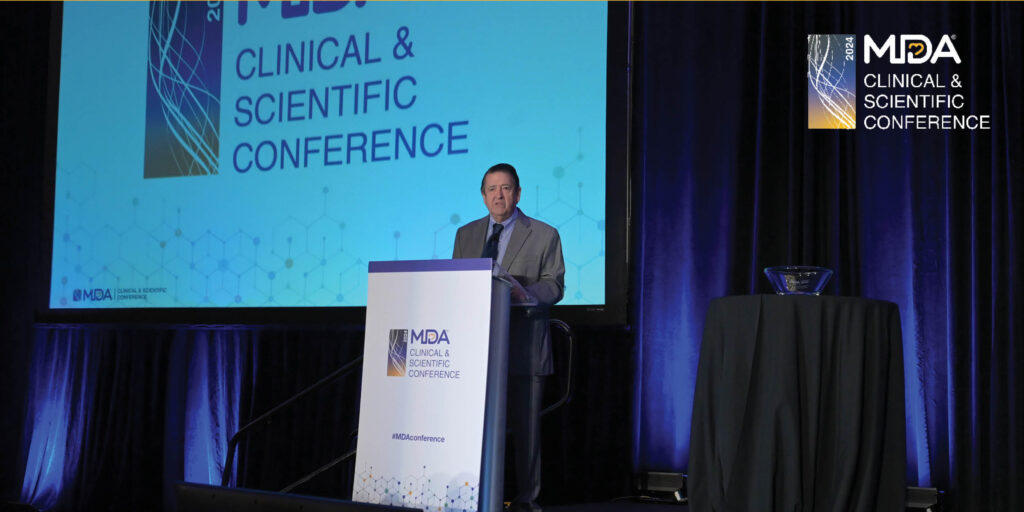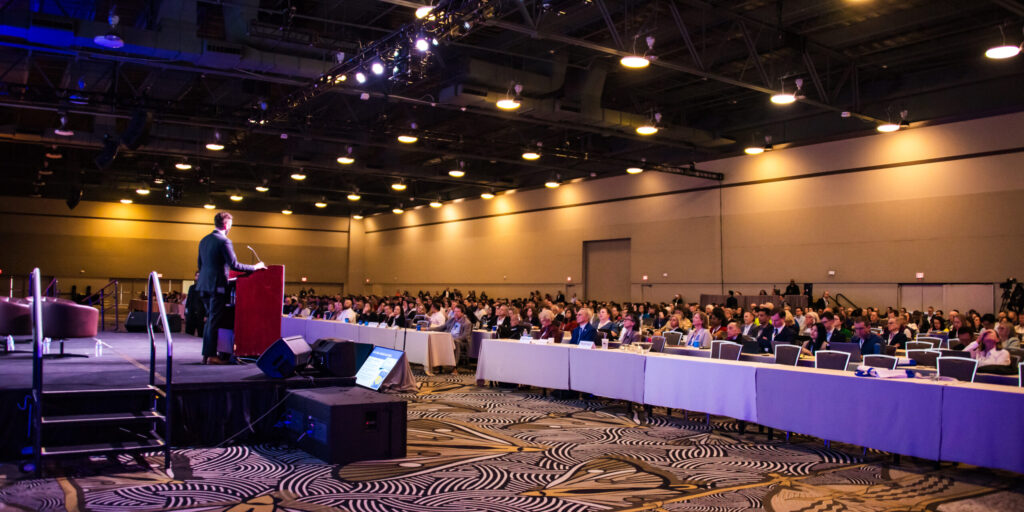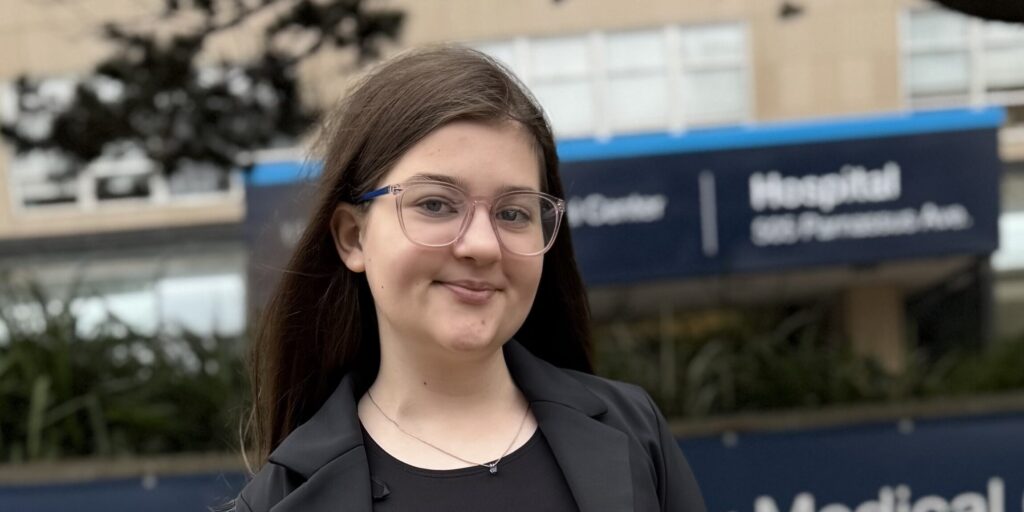
At MDA Conference Neuromuscular Disease Experts Discuss Readiness for Gene Therapies
By Larry Luxner | Wednesday, March 20, 2024
Gene therapies are the fastest growing area of therapy for neuromuscular diseases. But if US hospitals and clinics aren’t prepared to receive, store, and administer these costly drugs, they won’t be of much use to the patients who need them.
Institutional preparedness was the focus of a panel held on March 4 during the 2024 MDA Clinical & Scientific Conference in Orlando, Florida. Crystal Proud, MD, a pediatric neurologist at Children’s Hospital of the King’s Daughters in Norfolk, Virginia, moderated a panel of experts.
Building infrastructure
Two of the most important gene therapies approved by the US Food and Drug Administration (FDA) to date are Zolgensma® (onasemnogene abeparvovec-xioi), approved in May 2019 to treat spinal muscular atrophy (SMA), and Elevidys® (delandistrogene moxeparvovec-rokl), approved in June 2023 to treat Duchenne muscular dystrophy (DMD) in boys 4 and 5 years old.
Zolgensma, developed by AveXis — now a subsidiary of Novartis — costs $2.125 million for a single dose, while Elevidys, developed by Sarepta Therapeutics, retails for $3.2 million. This makes these gene therapies among the most expensive medicines in the world.
Both drugs are transported to treatment centers in frozen form. Before treatment, they must be moved from a freezer to a refrigerator to thaw. To be viable, the gene therapy must be infused into the patient within a few hours of thawing.
Aravindhan Veerapandiyan, MD, a pediatric neurologist at Arkansas Children’s Hospital in Little Rock, said institutions must identify the necessary infrastructure to administer gene therapies well in advance of their availability on the market.
“Engage in early dialogue,” recommended Dr. Veerapandiyan, who heads his hospital’s Comprehensive Neuromuscular Program. “In our institutions, we started this process a year, or two even, before we knew the therapies would be available for commercial use.”
Dr. Veerapandiyan suggested forming collaborative teams ahead of time that can tackle issues such as high-cost drugs, prior authorization, pharmacy, nursing, and billing. He also recommended developing a clinical team that includes experts in cardiology, neurology, hepatology, nephrology, pulmonology, hematology, immunology, genetics, rehabilitation medicine, and ethics.
“This is critical,” he told the audience of healthcare professionals. “We know what is associated with gene transfer therapy, and you need a core team who can help you manage this. If you do not have this specialist expertise, maybe you shouldn’t be doing gene therapy.”
Assisting families
Nancy Kuntz, MD, is a pediatric neurologist at Lurie Children’s Hospital of Chicago. She noted that gene therapies may not be equally available to all kids — particularly those from low-income neighborhoods without insurance or non-English speakers.
“Families with language or economic barriers, or jobs that don’t allow missing work, can have their children lose out on opportunities they might otherwise benefit from.” Dr. Kuntz warned. She added that healthcare professionals should not promise that gene therapies need to be administered one time only when it is not yet known how long the effects of gene therapies may last.
“Early on, somebody inadvertently let the phrase ‘one-and-done’ come out. We all work hard to move away from that concept because it really isn’t,” Dr. Kuntz said. “And it’s a minimum three-month commitment [after infusion] for very intense scrutiny, monitoring, and observation.”
Omar Abdul Hamid, a pediatric neurologist at Orlando’s Nemours Children’s Hospital, was the first physician in Florida to administer Elevidys to a patient with DMD. He advises creating a checklist for dosing day, which tends to begin with the family’s arrival between 7:30 and 7:45 a.m.
“Around 8:00, I get a text that the patient is ready to see me,” he elaborated. “After I clear them, I text the pharmacist and tell them to start thawing the medicine. That takes around two hours. The family is instructed to bring activities — toys, iPads, movies, games — to keep the patient occupied in a single room all day. I circle back throughout the day to keep an eye on things.”
Kids receiving gene therapy are generally not allowed to eat or drink anything for a few hours before or after the treatment to minimize blood flow to the gut and prevent complications. This makes it challenging to keep kids distracted and happy for a long day. Dr. Hamid typically doesn’t discharge patients until around 5:30 p.m.
“We joke that the day of dosing is often anticlimactic. But it’s very important to the families, so we work hard to set them up for success on that day,” he said.
One of the biggest challenges in the process is setting realistic expectations for family members who are still absorbing the seriousness of their child’s diagnosis.
“We all want our patients to do better, but we want to give families a very realistic understanding of the unknown,” Dr. Kuntz said.
Dr. Hamid recalled one case of a boy with DMD who was turning 6 in less than a month. The boy’s parents had heard about Elevidys — which currently is approved by the FDA only for boys 4 and 5 years old — and wanted him treated with the new gene therapy before his birthday.
“I sat down with them, took a deep breath, thought about it, and realized it just wasn’t going to be possible. It was difficult, but the family accepted this,” he said. “This boy did turn 6, and he’s now on eteplirsen [Exondys 51].”
The clinicians on the panel acknowledged that the emergence of new gene therapies comes with both great hope and difficult decisions. Preparedness will allow healthcare institutions to handle these situations in ways that benefit the most people.
Supporting the community
MDA is also playing a role in helping institutions and individuals and families prepare for gene therapies. The MDA Gene Therapy Support Network is a new initiative that supports the MDA Care Center Network and the neuromuscular disease community in their efforts to address the challenges and promise of gene therapy. This platform includes expert-advised guides on the practical aspects of gene therapy administration for clinics as well as education materials for families.
Next Steps and Useful Resources
- Gene Therapy Support Network
- Stay up-to-date on Quest content! Subscribe to Quest Magazine and Newsletter.
Disclaimer: No content on this site should ever be used as a substitute for direct medical advice from your doctor or other qualified clinician.




